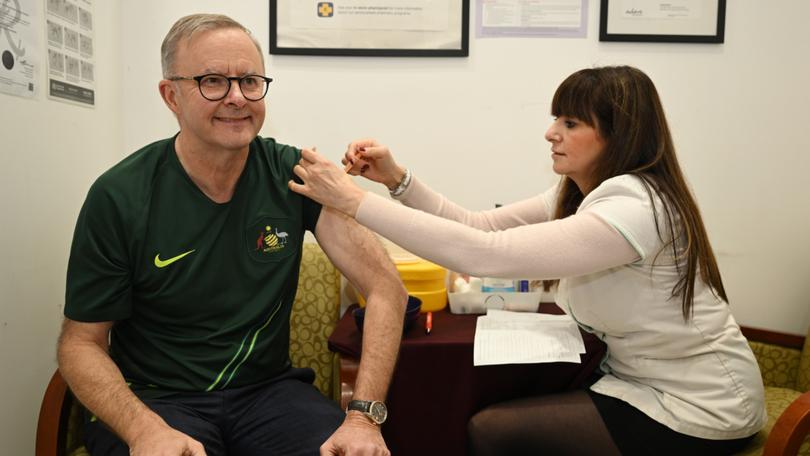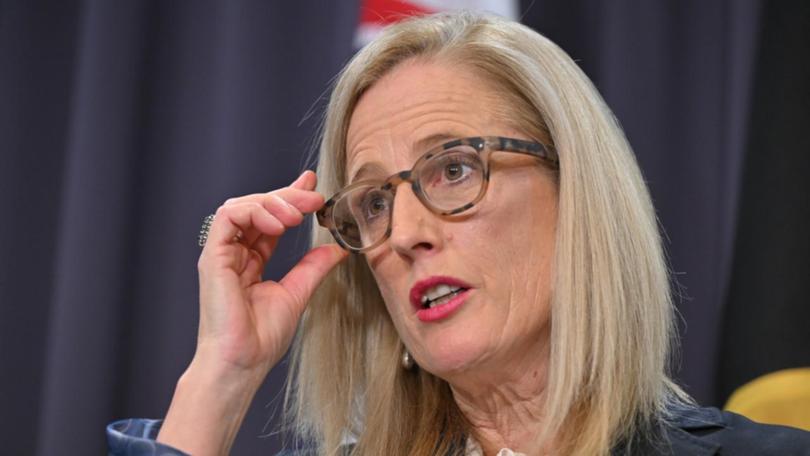Mark Riley: A show trial into Australia’s COVID response would serve no one
Australians deserve answers on what worked, what didn’t work and how we can be better prepared when the next pandemic comes along. And the way that is done shouldn’t be overtly political.

Launching his final push into the election at the National Press Club in January 2022, Anthony Albanese promised that if Labor came to power he would order a thorough investigation into Australia’s response to the COVID pandemic.
“Whether that would be a royal commission or some form of inquiry, that will need to happen,” he said.
Now we know he’s opted to go with “some form of inquiry”.
Sign up to The Nightly's newsletters.
Get the first look at the digital newspaper, curated daily stories and breaking headlines delivered to your inbox.
By continuing you agree to our Terms and Privacy Policy.That’s despite the firm recommendation of a Labor-dominated Senate Committee just one month before the election that only a royal commission could get to the bottom of the deep, structural issues that demanded examination.
The chair of that committee was now-Finance Minister Katy Gallagher.

She said the powers of a royal commission were needed to compel witnesses to appear and force the production of documents that would be essential to supplying answers to the big questions.
The Coalition is accusing Albanese of breaking a promise by not ordering a royal commission. That’s both wrong and too cute by half.
He never promised a royal commission and Coalition members of Gallagher’s Senate committee wrote a dissenting report back then objecting to one on the grounds that it was unnecessary.
It is one of the constant certainties of politics that oppositions demand royal commissions into all manner of issues and governments are reluctant to call them.
And when governments become oppositions, they quickly transition from reluctance to insistence and vice versa.
Why? Because royal commissions tend to take on a life of their own. They often turn against the government that calls them.
They are also expensive and, as Albanese observed yesterday, take a long time to report.
But Australians deserve answers on what worked, what didn’t work and how we can be better prepared when the next pandemic comes along.
And the way that is done shouldn’t be overtly political. It shouldn’t be a show trial about blame and payback and punishment.
From what Albanese said yesterday, it won’t be. He says he doesn’t want Robyn Kruk’s inquiry to become a source of conflict. He wants it to be constructive.
But the inquiry isn’t strictly an “inquiry” at all. It’s more of a review.
There will be no public hearings, no evidence under oath, no cross-examinations.
Instead, it will accept written submissions, examine documents related to decisions taken and review the work of the other 20 “inquiries” Albanese says have already been conducted into the pandemic response.
All this will be done behind closed doors with a report and recommendations to be issued within a year.
The terms of reference also specifically rule out any examination of “actions taken unilaterally by State and Territory governments”.
Former deputy chief medical officer Dr Nick Coatsworth, observed yesterday: “That’s pretty much everything they did”.
No doubt several former and present premiers — including Mark McGowan — heaved a sigh of relief at that.
But none would have been as relieved as Daniel Andrews. Victoria endured the harshest lockdowns, the most deaths, the worst contact-tracing and most business failures of any State — all largely on the basis of unilateral decisions taken by his Government.
The review will only concern itself with the actions of the Federal government and the collective decisions of National Cabinet.
That will cover most of the public health responses, such as accessing and rolling out vaccines, sourcing medical supplies, such as personal protective equipment, and the adequacy of mental health services.
On the economic side, it will also examine the effectiveness of JobKeeper and the various business supports. That could also include the vexed question of whether those companies that took the payments then returned massive profits should have repaid the money.
Perspective and context, though, will be important.
The could’ve, should’ve, would’ve game will be easy to play in hindsight.
But no one had the benefit of a retrospectroscope during the pandemic.
Policymakers could hardly understand the present, let alone see into the future.
Judgments on the actions they took will need to be made in the context of the penetrating uncertainties of the time.
Anything else would make a royal commission or an inquiry or even a review of limited value.

